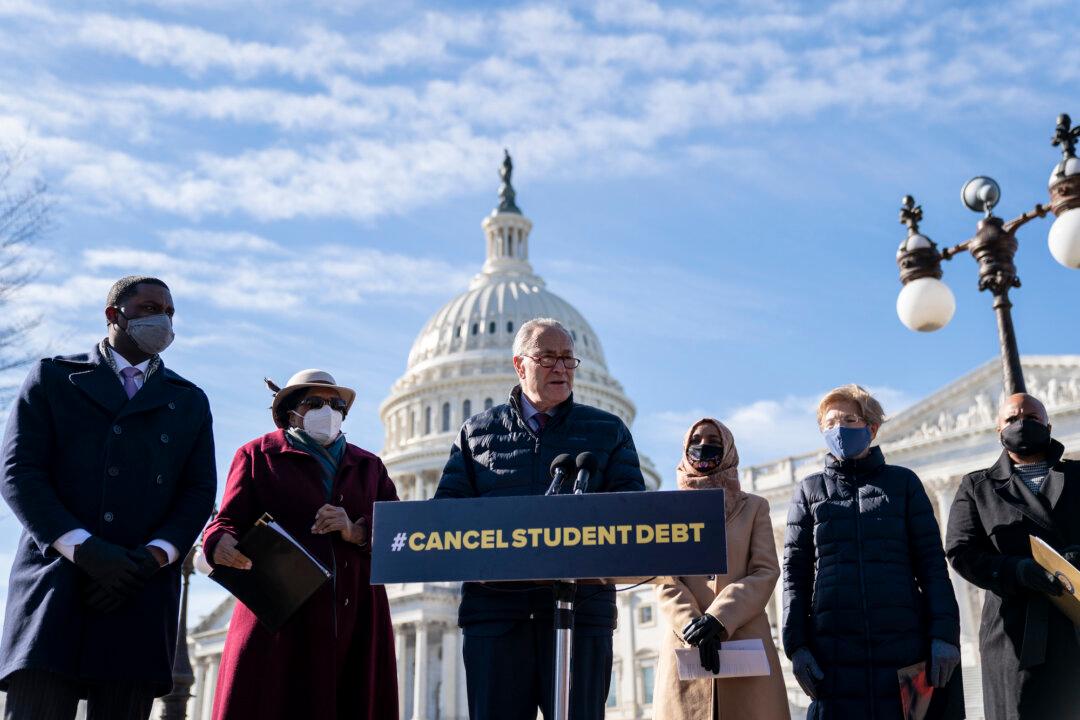Congressional Democrats are pushing President Joe Biden to wipe out $50,000 in debt for federal student loan borrowers via executive order, but the White House suggests it should be done by with legislative means.
Senate Majority Leader Chuck Schumer (D-N.Y.), joined by Sen. Elizabeth Warren (D-Mass.), Rep. Ayanna Pressley (D-Mass.), and other Democratic lawmakers, urged Biden to take executive action to cancel $50,000 per borrower. They argue that the move would boost the economy, reduce the “racial wealth gap,” and lead the country toward a “long-term, equitable, and just recovery.”





